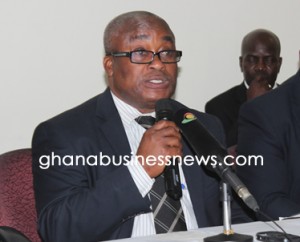High accident rate forces Ghana insurers to increase motor vehicle third party premium

The rising spate of road traffic accidents in Ghana is hitting insurance companies hard, leading to underwriting losses, and as a result they have increased premiums for motor vehicle insurance.
The new premiums are GH¢1.58 daily for taxis, GH¢2 for mini buses carrying 15 passengers and GH¢2.8 for maxi buses.
The total basic premium for private and corporate individuals is GH¢430 for third-party insurance per annum.
Speaking to journalists in Accra Tuesday June 9, 2015, Mr. Atsu Kosi Menyawovor, CEO of the Ghana Insurers Association (GIA) said motor vehicle accident portfolios of insurance companies are suffering losses, as a result of “the low premium and high accident rate.”
According to Ministry of Transport statistics as at October 2014, a total of 11,035 cases of road traffic crashes had been reported involving 16,749 vehicles, 9,648 injuries and 1,606 deaths.
Mr. Menyawovor told journalists that insurance companies are compelled under law to pay claims to anyone that is injured in an accident.
“It is instructive to note that almost every injury or death resulting from a road accident results in a claim payable by an insurance company,” he said, adding, “the amounts could be as high as GH¢220,000 and even more especially, when a court order is given. We have had courts awarding up GH¢10 million when the premium paid is GH¢53. This particular court award against SIC became public knowledge a couple of years ago.”
He however added that the premium that vehicle owners is “grossly underpriced as compared to the claims that insurance companies pay.”
He indicated that insurance companies pay claims based on the frequency and severity of accidents, however, the third-party motor insurance cover has been grossly underpriced in terms of the premium that it generates, but on the other hand the personal injury and death claims that are paid as a result of accidents involving policy holders have always been very high.
Meanwhile, public transport drivers and their associations have threatened to boycott the insurance companies and start their own.
By Emmanuel K. Dogbevi
